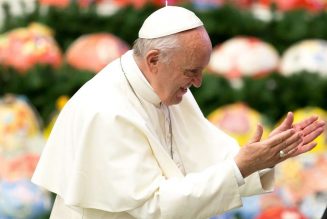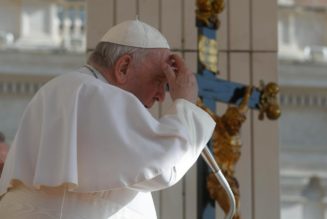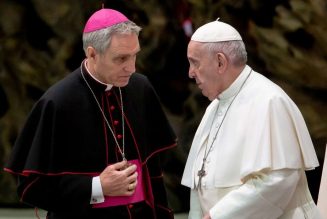
St. Dominic’s Church in Macau, China. (Shutterstock)
China has been slowly re-opening institutions in the wake of the coronavirus pandemic, including religious services.
ZHEIJIANG, China — State-sponsored Catholic authorities in parts of China have issued regulations on the reopening of churches during the coronavirus pandemic. The new rules include a requirement that churches must preach on “patriotism” in order to reopen.
In the eastern province of Zhejiang, the state-affiliated Chinese Catholic Patriotic Association and the province’s Chinese Catholic educational administration committee issued a statement on May 29 regarding the resumption of Mass the following week.
The statement requires that only “religious places that meet the conditions of epidemic prevention” would be allowed to celebrate Mass starting on June 2. Among these conditions was the requirement to add “patriotism” to the celebration of the liturgy.
Local Chinese Catholics, speaking to UCA News, called the new measures inappropriate.
“The first requirement in the notice is to teach a good lesson on patriotism. It is wrong. As members of the universal Catholic Church, we cannot accept and glorify what communists consider patriotic education,” said Fr. Liu from the province of Hebei to UCA.
A Catholic from Wenzhou named Jacob Chung characterized the move as additional government interference “in the internal affairs of religion.”
The CCP seeks to “suppress and transform” the Catholic Church in China to better promote communist values, he added.
China has been slowly re-opening institutions in the wake of the coronavirus pandemic, including religious services. Regulations differ by province, and some parishes are required to check the temperatures of worshipers before they are allowed into the building.
In Sichuan, those seeking to go to church must get the permission of a government official.
The new rules come as the Chinese government takes increasingly strong measures to promote “sinicization” in the practice of religion.
In 2019, the Xinhua News Agency reported that a member of the Politburo Standing Committee had overseen a meeting that discussed the creation of a translation of scripture that is in line with the Chinese communist party.
The meeting reportedly included “religious people from the grassroots level” and scholars. Their goal was to create “accurate and authoritative interpretations of classical doctrines to keep pace with the times.”
To accomplish this goal, passages that have been ruled to violate the “core socialist values” of the CCP would be removed from texts like the Bible and the Quran.
The CCP seeks to “create a new version of Christianity shorn of its transcendent visions and values,” Xi Lian, a professor at the Duke University Divinity School, told the Wall Street Journal.
Since coming to power in 2013, Chinese President Xi Jinping has mandated the “sinicization” of all religions in China, a move which the U.S. Commission on International Religious Freedom called “a far-reaching strategy to control, govern, and manipulate all aspects of faith into a socialist mold infused with ‘Chinese characteristics.’’’
The Chinese government is in the midst of implementing a five-year “sinicization plan” for Islam, a religion that has faced increased persecution in the country with at least 800,000 Uyghur Muslims held in internment camps.
Catholic acceptance of the “sinicization” program has been a much-discussed topic following the formalization of last year’s agreement between the Vatican and China that regularized the country’s government-appointed bishops with the Holy See.
Previously, bishops affiliated with the “Chinese Catholic Patriotic Association” were consecrated illicitly and out of communion with Rome.
In 2019, Cardinal Pietro Parolin, Vatican Secretary of State, said that “inculturation,” a Catholic missionary practice, and “sinicization” can be “complementary” and “can open avenues for dialogue.”
“Inculturation is an essential condition for a sound proclamation of the Gospel which, in order to bear fruit, requires, on the one hand, safeguarding its authentic purity and integrity and, on the other, presenting it according to the particular experience of each people and culture,” he said.
“These two terms, ‘inculturation’ and ‘sinicization,’ refer to each other without confusion and without opposition.”
The full terms of the Vatican-China agreement have not been released.







